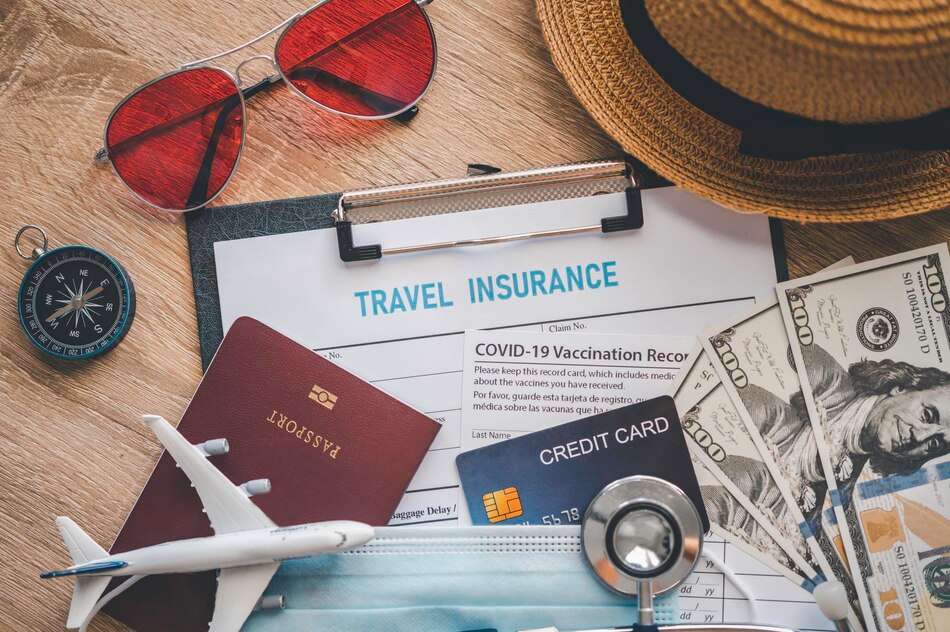Travel insurance provides financial protection throughout travel. It covers trip cancellations, medical emergencies, lost baggage and other unexpected events providing travelers with peace of mind. Policies may cover trip interruption, medical emergencies and travel losses. Understand the purpose and types of travel insurance to make informed choices and provide protection when traveling.
Dos Of Filing A Travel Insurance Claim
These procedures increase your chances of a successful and straightforward travel insurance claim. Essential claims procedural steps:
Gather All Required Documents
All claim paperwork must be collected and kept. Consider including travel itineraries, receipts , medical records, police reports, proof of ownership and other relevant data. The complete documentation will aid your insurance in processing your claim.
Notify Your Insurance Provider Promptly
Reporting accidents and claims soon is essential. Some insurance firms have tight reporting deadlines. Notifying your provider quickly may prevent claim rejection. Report concerns to your insurance quickly to minimize difficulties. Medical crises, theft and vacation cancellations need immediate reporting.
Be Honest And Accurate
Travel insurance claims need honesty. Claim filing and event reporting need honesty. Exaggerated or fabricated facts might lead to claim rejection and legal action. The insurance company needs accurate information to evaluate your claim. Provide accurate information to simplify claims.
Follow The Claim Process
Insurance companies handle claims. Carefully follow this step to file a claim, complete claim forms, provide documentation, communicate with the claims adjuster and fulfill deadlines. Follow guidelines to avoid claim delays.
Keep Records And Copies
Record keeping helps with travel insurance claims. Keep travel insurance and claim documentation. This includes trip itineraries, receipts , insurance correspondence and claim specific documents. This strategy keeps a comprehensive record of interactions and makes it easy to access information throughout the claims process.
Don’ts Of Filing A Travel Insurance Claim
Travel insurance claims need prudence. These travel insurance claim don’ts will help you avoid frequent mistakes:
Don’t Delay Reporting Incidents
A huge don’t. is event reporting delays. Claims must be reported ASAP. Insurance companies have claim deadlines and missing them may lead to refused claims. Report travel cancellations, medical emergencies and other covered occurrences to your insurance promptly to minimize difficulties.
Don’t Exaggerate Or Fabricate Claims
Lie allegations are severe. Exaggerating or lying about a loss may result in claim rejection and legal action. Explaining the occurrence and its influence on your travel plans may help. Travel insurance claims must be honest.
Don’t Miss Claim Deadlines
Take advantage of insurance claim deadlines. Please complete these dates to ensure your claim is accepted. Please submit your claim before the deadline to be considered. Being prompt is crucial for a successful claim.
Don’t Disregard Policy Exclusions
Every travel insurance plan excludes certain behaviors, events and conditions. Understand these rules to avoid disappointment and unexpected expenditures. Know what your insurance doesn’t cover to manage expectations and avoid claims.
Don’t Assume All Costs Are Covered
Coverage errors may be expensive and travel insurance may only cover some things. Examine your policy scope and limits. Expecting vacation cost reimbursement may result in unanticipated charges. Be aware of coverage restrictions, copayments and deductibles.
Tips For A Smooth Claims Experience
Claiming trip insurance might take a lot of work. Several strategies may streamline and speed up claim submission.
Document Your Travel Itinerary
Make sure to plan your trip well. Flights, accommodations , excursions and prepaid bookings are included. A thorough travel schedule including a timeline and proof of your travels might be vital for pursuing a claim.
Contact Customer Support
To report events or claims contact your insurance company customer service. Counsel answers inquiries and explains claims. Customer support can provide instructions and get the required documents.
Seek Professional Guidance
Complex situations or claim rejections may need professional assistance. A travel insurance agent or lawyer may assist. The professionals can advise and advocate your claim to safeguard your rights.
Keep A Record Of Correspondence
Insurance communication must continue. Log emails, letters and calls. Keeping track of your relationships helps you be honest and follow insurance instructions throughout the claims process.
Familiarize Yourself With Policy Terms
Before traveling or filing a claim check your insurance. Understand the terms restrictions and coverage limits to manage expectations and make informed claims.
Be Patient And Persistent
Claims may take time and delays and information requests are common. Engage track and provide claim documentation quickly. In case of issues or claim rejections assert your rights and communicate professionally and politely with the insurance provider.
Maintain Accurate Records
Maintain accurate and organized records throughout travel and claims procedures. This includes medical bills, police documents, incident receipts and other proof of your claim. Completer records accelerate claims processing.
Following these suggestions may enhance your claims experience. If proactive and aware travel insurance may provide financial support for travel disruptions, medical problems and other covered situations.
Conclusion
Travelers must know how to make a claim to get travel insurance benefits and protection. To increase their chances of success travelers should gather necessary documents, report incidents promptly, provide accurate information and follow the claim process.
To ensure a smooth claims procedure avoid common mistakes such as delaying accident reporting, exaggerating claims and disregarding insurance limits. Travelers need to be proactive and knowledgeable to optimize travel insurance and get assistance during unforeseen delays.
